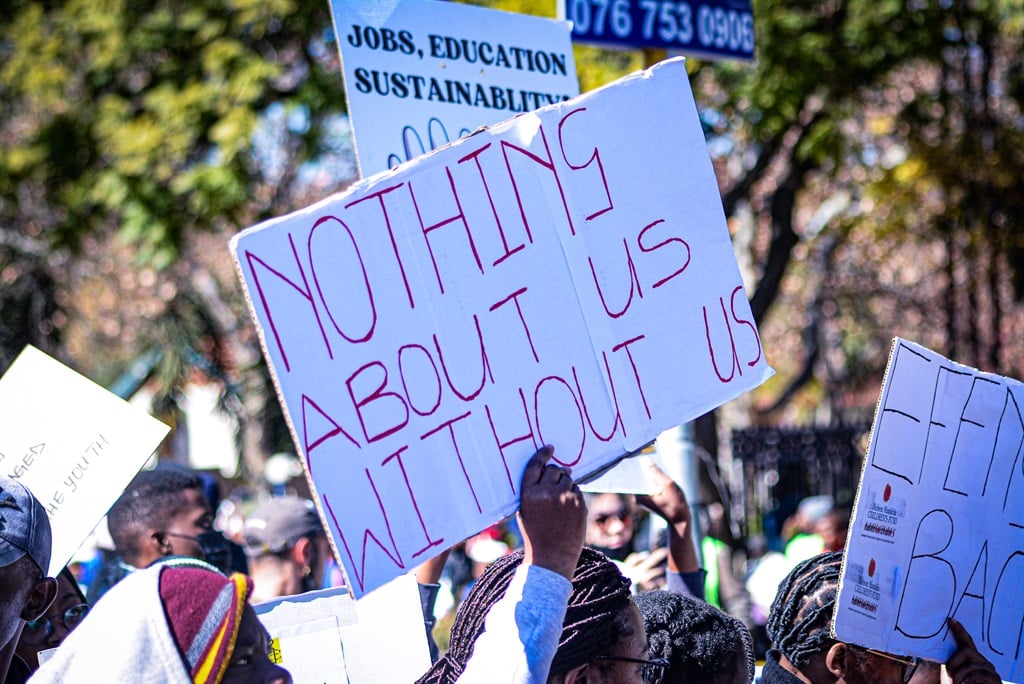
Recently, the World Economic Forum (WEF) held its first in-person AGM since January 2020, just before the Covid-19 pandemic changed this generation’s sense of reality for ever. The theme of the meeting was History at a Turning Point.
This is quite dramatic. But most of us I suspect, share a sense that we are indeed, at a turning point and would probably agree with the words of WEF founder and chairperson Klaus Schwab, that:
Our circumstances are unprecedented both because we face large challenges, and because we have enormous means at our disposal to address them once and for all and enter an era of globally shared prosperity.
The challenges we face typically comprise interconnected issues, such as energy and food prices and the need to prioritise the climate challenge actions. The solutions we require in many areas, will necessarily also have to come from multidisciplinary sources and be based on effective multistakeholder partnerships.
READ: Dikeledi Molatoli | Farmgate: What’s wrong with being filthy rich?
The inclusion of youth in the economies is essential for innovation and productivity, and for the legitimacy and sustainability of democracies themselves, but it is in crisis and reflects a broader system that does not work as well as it could.
It is Youth Month and we need to recognise that we have done poorly when it comes to the inclusion of young people in our economy over the last decade and a half.
We have failed the youth
Youth jobs took a massive hit both during the 2008 global financial crisis and in the Covid-19 period. Furthermore, in the years between these two defining crises, although 2.7 million jobs were created overall, only 8% went to people younger than 35.
READ: Welcome class of 2023: YouTube’s Black Voices Fund is open for business
As a result, the total number of youth jobs remains less than it was in 2008. If we include discouraged work seekers, we had 7.4 million unemployed youth at the end of last year, for an unemployment rate of 60%.
As we have failed to turn the tide, we have seen a growing loss of faith in our democracy. For example, the most recent Afrobarometer survey, suggests that two thirds of South Africans would be willing to live under a non-elected government or leader if they could ensure law and order, and deliver houses and jobs.
The origins of the youth jobs crisis are complex – they include uneven public education, low skills, weak economic growth, mismatches between the skills demanded by high growth sectors and the skills many youth possess.
READ: SA’s child mental health crisis
There is a bias in favour of those with a university education rather than technical and vocational training, ineffective career guidance and counselling at a young age, and gender biases, which diminish the pool of youth doing science, engineering and related fields because too many girls and young women are enculturated to think it is “not for me”.
However, at this turning point globally and historically, we can and must also decisively re-craft our economies to ensure youth economic inclusion that contributes to more dynamic and innovative economies.
READ: Voices | Clowns to the right, thieves to the left ... SA is under siege
Issues such as youth unemployment traverse the neat silos of public and private sector, and they can only really be addressed through multistakeholder approaches. Preparing for the jobs of tomorrow, while confronting the reality of youth unemployment today, is only possible if we combine the strengths of business, labour, educational institutions, and government.
How to link youth and business
We need to ensure we have policies and public programmes in place that target youth. But in addition I think we can do much more to link the youth with businesses in a way that is mutually beneficial.
READ: Sundowns offering five internships to deserving youngsters
Harambee, a social enterprise focused on accelerating youth employment, has estimated that job search costs the typical South African applicants R1 100 a month.
Often young people incur debt to search for work, compounding the stress and frustration when such efforts are unsuccessful. And they often are, not only because jobs may be scarce in general, but also because young people often have job search strategies that increase the risk of failure. They respond to adverts that get thousands of applications, for example, because they don’t have access to networks and “social capital”.
It is worth recalling that 70% of university entrants are first generation varsity participants, who lack networks into the formal labour markets once they graduate.
READ: Why SA universities need to rethink online learning
At the same time, we have businesses which are increasingly recognising the need to play an active role in enhancing the skills of their workforce and potential employees. They are offering internships, mentoring, coaching and the like, but they also may not have a multidimensional sense of the challenges prospective youth face or how to best address them through customised support.
There are win-win scenarios here, but they need to be unlocked, not so much at the policy level, but with concrete and recurring interactions.
This recognition prompted me towards the idea of a Youth Information and Opportunities Expo, which the Motsepe Foundation will be hosting for the first time on June 28.
READ: The hard, sad facts about our disempowered youth
We hope to create a platform for youth to engage with various organisations to understand the needs of the industry and what skills are needed. This will give companies a chance to unpack what they offer, give industry a more nuanced sense of the challenges youth face and how they can help address these, stimulate discussion on youth entrepreneurship and how it can be supported, and generate excitement among youth about opportunities that do exist and that they may not be aware of.
We need to change the narrative towards one of hope and opportunity, and we can only do this through partnership. I am proud and grateful that partners such as Naspers, Discovery, Massmart, Microsoft and Accenture will be joining the expo and working with us towards lasting solutions.
Underpinning the expo is open-source education, which we challenge all young people and businesses to consider.
My sincere wish is that similar events and approaches are adopted by other organisations, in order to generate the momentum we need for youth job creation. If we get this momentum, and we couple it with fast, inclusive overall growth, our turning will be in the right direction.
Moloi-Motsepe is co-founder and CEO of the Motsepe Foundation
| ||||||||||||||||||||||||||||||
 |




 Publications
Publications
 Partners
Partners










